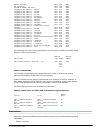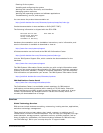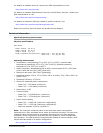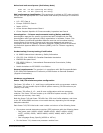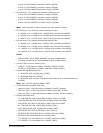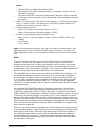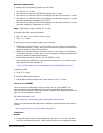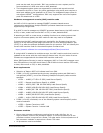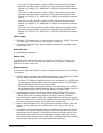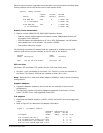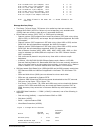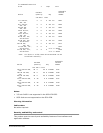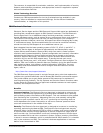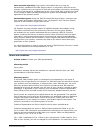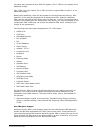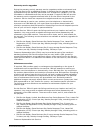
IBM Europe, Middle East, and Africa Hardware
Announcement ZG10-0214
IBM is a registered trademark of International Business Machines Corporation
33
– The 4-core 3.0 GHz processor module (#8350) requires that four processor
activation codes be ordered. A maximum of four processor activation code
features (4 x #8360, or 2 x #8360 and 2 x #8363) are allowed per processor
module.
– The 4-core 3.7 GHz processor module (#8349) requires that four processor
activation codes be ordered. A maximum of four processor activation code
features (4 x #8381, or 2 x #8381 and 2 x #8383) are allowed per processor
module.
– The 6-core 3.7 GHz processor module (#8349) requires that six processor
activation codes be ordered. A maximum of six processor activation code
features (6 x #8382, or 3 x #8382 and 3 x #8384) are allowed per processor
module.
– The 8-core 3.55 GHz processor module (#8359) requires that eight processor
activation codes be ordered. A maximum of eight processor activation code
features (8 x #8372, or 4 x #8372 and 4 x #8375) are allowed per processor
module.
Power supply
• The Power 710 contains one 1725 watt AC power supply (1 x #5603). The Power
730 contains two 1725 watt AC power supplies (2 x #5603).
• A second 1725 watt AC power supply (#5603) is available for redundant power
on the Power 710.
Redundant fans
• Redundant fans standard
Power cords
One power cord is required for each power supply on the order. The Power 710
supports 110-127 V ac and 200-240 V ac power cords. The Power 730 supports
200-240 V ac power cords only.
System memory
A minimum 8 GB or two DIMMs of memory is required on the Power 710 and Power
730 systems.
• The base machine contains one nonfeaturized memory riser card with four DIMM
sockets. Memory features consume two memory DIMM sockets.
– The Power 710 offers one optional memory riser card feature (1 x #5265) with
an additional four DIMM sockets. Maximum system memory is 32 GB without
feature 5265 and 64 GB with one x feature 5265.
– The Power 730 offers three optional memory riser card features (3 x #5265)
with an additional four DIMM sockets per feature. Maximum system memory is
32 GB without feature 5265 and 128 GB with three x feature 5265.
• A system can be ordered with a single memory feature 4526 or 4527. When
adding additional memory to a system with one x feature 4526, a second one
x feature 4526 must be ordered, and then all memory must be ordered in
increments of two x feature 4526. When adding additional memory to a system
with one x feature 4527, a second one x feature 4527 must be ordered, and then
all memory must be ordered in increments of two x feature 4527.
• Feature 4526 and feature 4527 are not allowed on the same memory riser card.
However, memory features can be different from one memory riser card to
another.
• It is generally recommended that memory be installed evenly across all memory
riser cards in the system. Balancing memory across the installed memory riser
cards allows memory access in a consistent manner and typically results in the
best possible performance for your configuration. However, balancing memory
fairly evenly across multiple memory riser cards, compared to balancing memory
exactly evenly typically has a very small performance difference.



